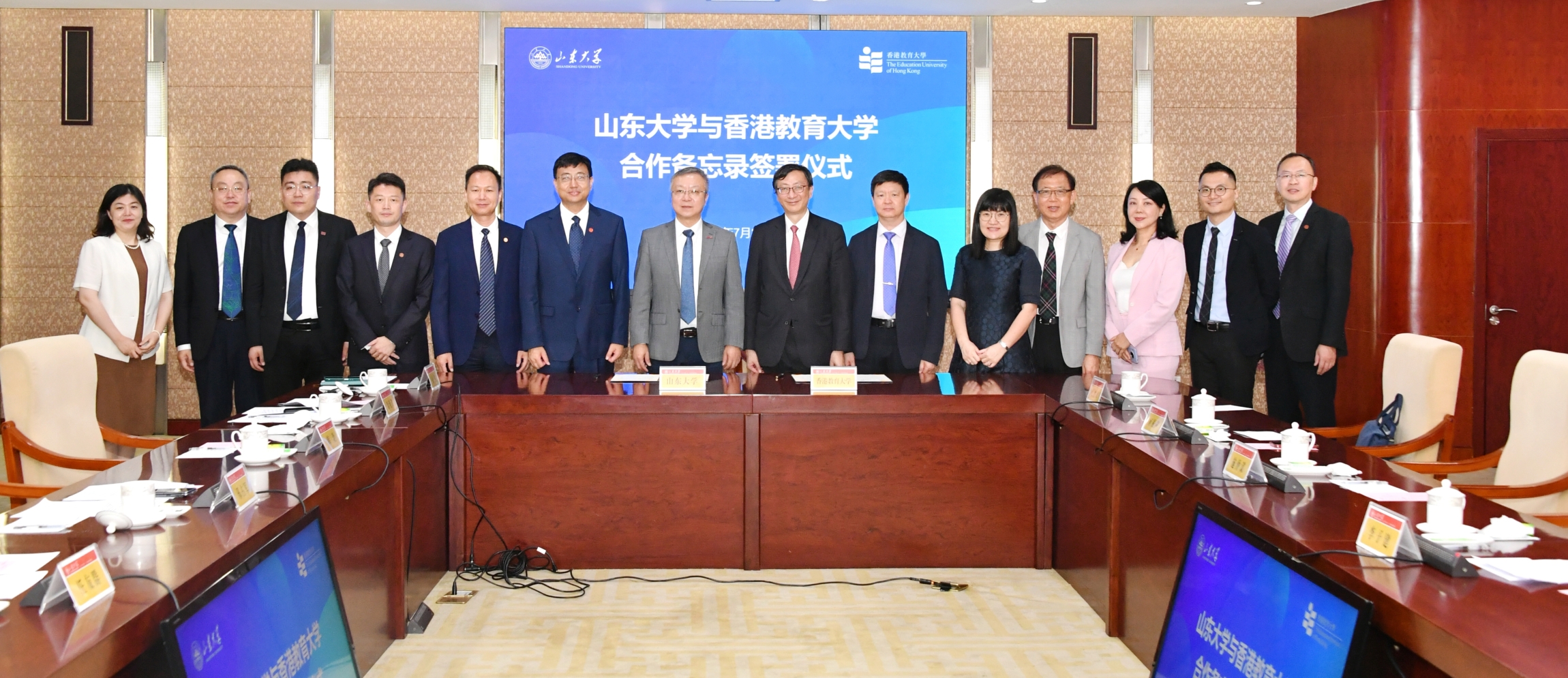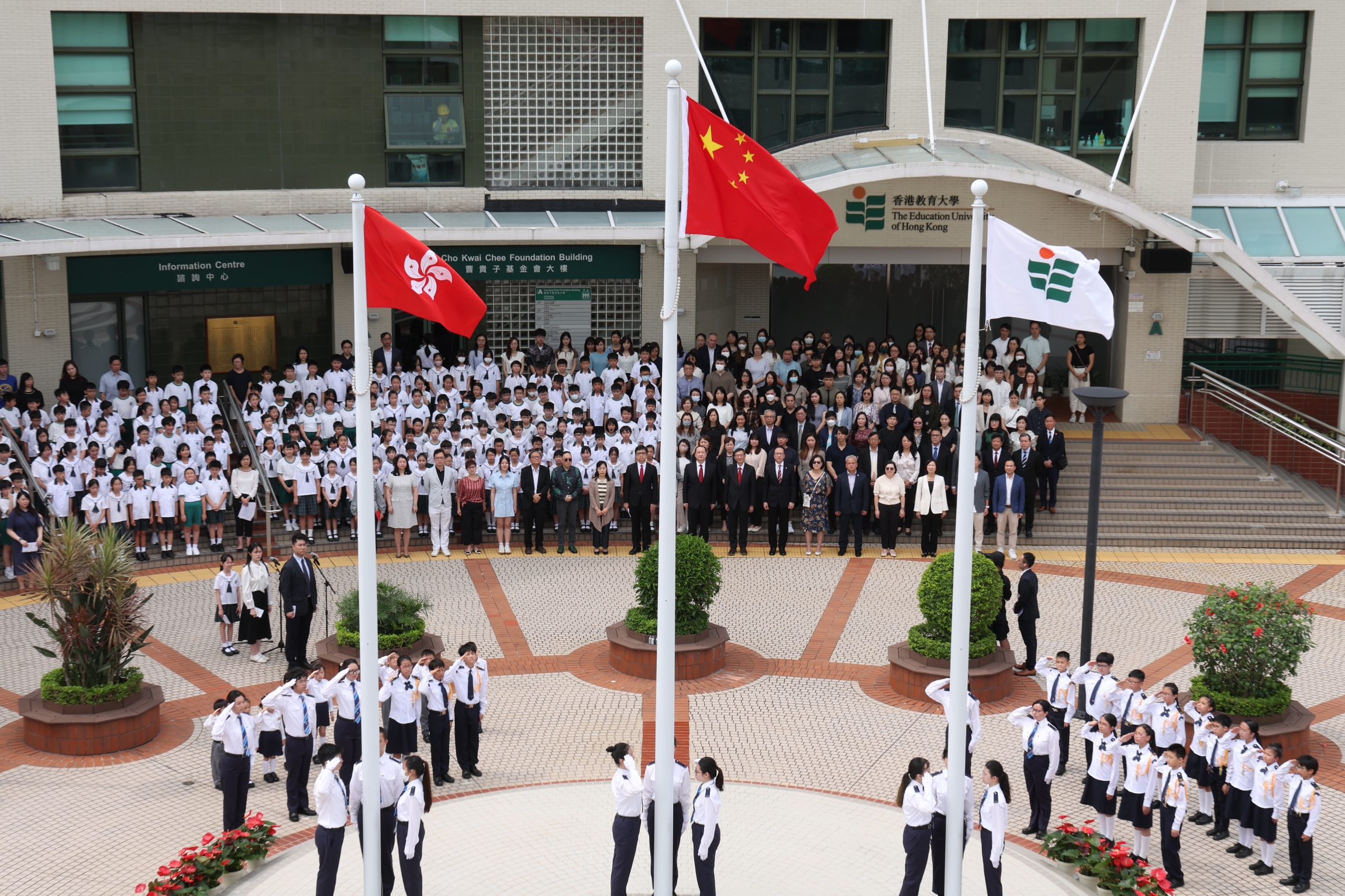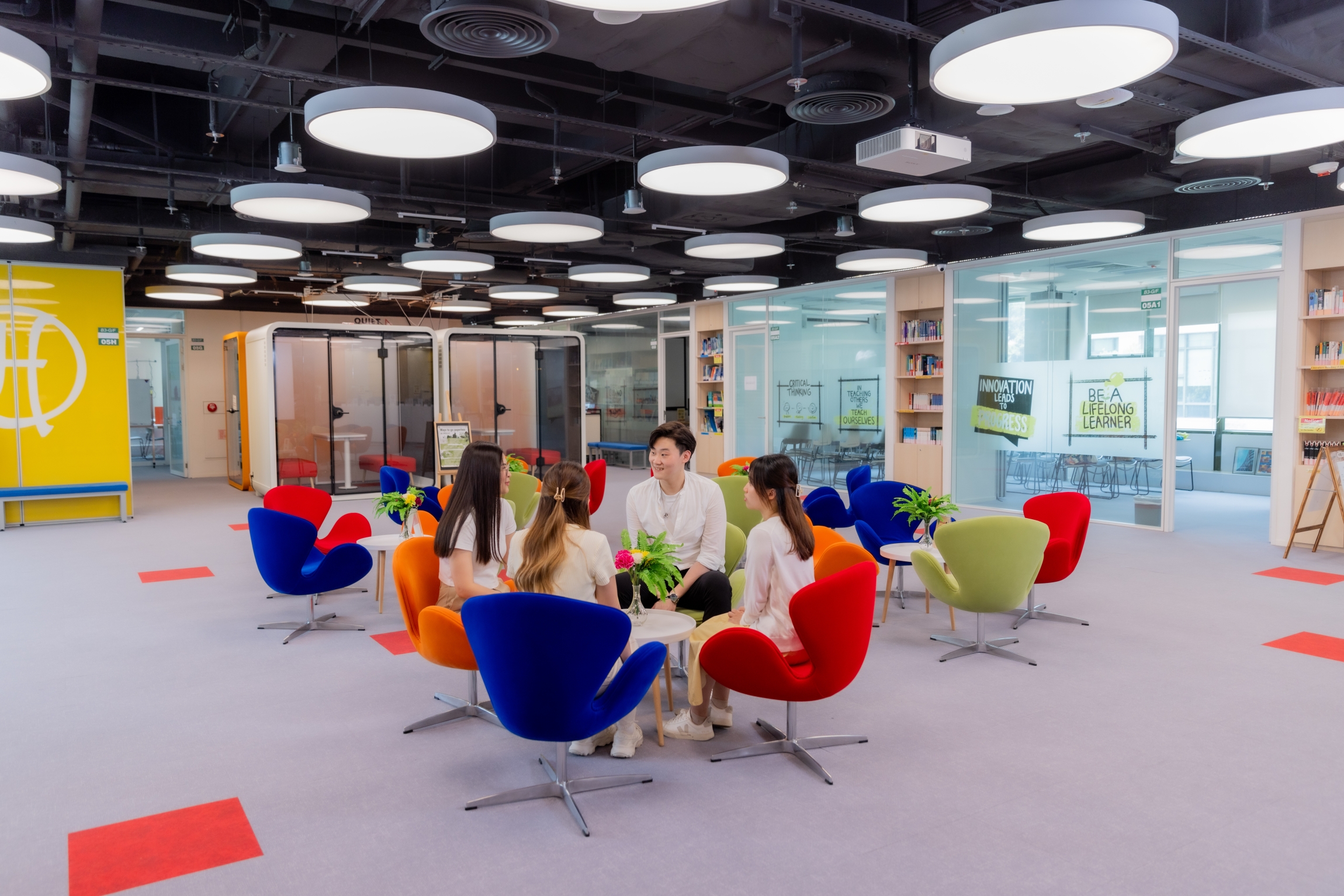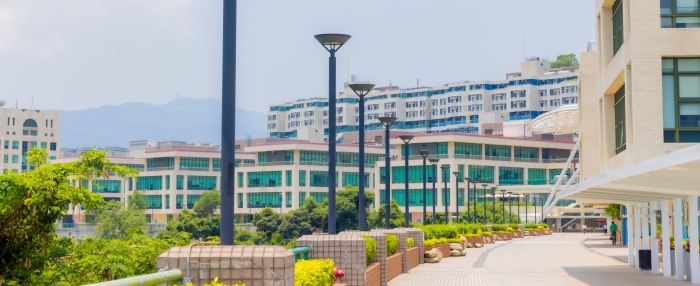From “Education-plus” to “Education Futures”
The Education University of Hong Kong (EdUHK) is a publicly funded university that provides a full range of programmes at sub-degree, undergraduate, taught postgraduate (TPg) and research postgraduate (RPg) levels in a variety of disciplines. With a rich legacy as the former Colleges of Education, EdUHK has established itself as the leading provider of teacher education in Hong Kong SAR, nurturing pre-service professional teachers through its teacher education programmes and offering professional development programmes for in-service teachers.
Today, EdUHK is home to more than 7,600 students and boasts an exceptional team of over 420 academic and teaching staff who specialise in education and disciplines complementary to education in Hong Kong SAR. The University has also achieved impressive rankings. It was ranked 4th in Asia and 12th in the world in Education in the QS World University Rankings of 2025, testifying to our international recognition and world-leading expertise in the field. Forging ahead, we seek to create a positive impact that extends beyond the field of education and to develop high-calibre talents who can contribute in multiple capacities to the development of local, regional and international communities.
The University has undertaken the development of a new Strategic Plan for the period from 2025 to 2031 with a focus on “Education Futures”. The term “Futures” encompasses the promise of a digital future driven by creativity, technology and innovation but also the uncertainties and challenges associated with such a future. With the direction of Education Futures, EdUHK is dedicated to providing its students with the most up-to-date skills and knowledge, nurturing them to embrace technology and preparing them for the impact of science and technology and the challenges of a digital future. Education Futures is a strategic initiative aimed at articulating the University's role as a pioneer in the field of education and complementary disciplines by fostering advancements in the field through research and innovation and offering exceptional and diverse programmes and a myriad of learning opportunities in Hong Kong and beyond that will prepare our students to be forward-thinking and future-minded. EdUHK is committed to continuously enhancing its interdisciplinary and transdisciplinary capacities by integrating arts, education, humanities and technology to propel the development of the “Eight Centres” in Hong Kong as outlined in the National 14th Five-Year Plan.
Focusing on “Education Futures”, the University will continue to augment its capacity to initiate innovative and impactful academic development for the future of education by diversifying the profiles of our programmes. During the 2022–2025 triennium, we introduced nine new undergraduate programmes in disciplines complementary to education, such as artificial intelligence (AI) and educational technology, heritage education and arts management, and sports science and coaching. Students with multiple aspirations are encouraged to interact with peers and professors from diverse disciplines and can customise their learning journeys through common cores, electives, second majors and minors, leading to an enriched and diversified learning experience.
Connecting Opportunities in the Greater Bay Area and Other Parts of Mainland China and Asia
We have actively participated in collaborations and exchanges with Mainland China, the region and the world, facilitating the development of Hong Kong SAR into the “Eight Centres” in the National 14th Five-Year Plan and aligning with the national and local development direction and policies. Growing Hong Kong SAR as a regional education hub means attracting academic and research talent from all over the world. This requires us to enhance our ability to nurture talented and skilled professionals who can meet rapidly evolving global challenges and seize the enormous opportunities under the National 14th Five-Year Plan. Hong Kong SAR's deepening integration with the Greater Bay Area (GBA) and other parts of Mainland China and Asia has presented many exciting possibilities and opportunities for us to extend our reach into the region for academic and research collaborations and youth exchange. The University has signed Memorandums of Understanding to foster academic collaboration with various universities in Mainland China, such as Peking University, Shandong University and Tsinghua University. We will pursue more research partnerships and academic collaborations in the GBA to help our graduates seize the opportunities presented by government initiatives such as the “Greater Bay Area Youth Employment Scheme” and “Youth Entrepreneurship”.

We have also identified Belt-and-Road countries in the Asia region, including Cambodia, Malaysia, the Philippines and Thailand, as targets for developing partnerships. The Working Group of Internationalisation Strategies of the University was established in 2024 and is responsible for developing plans and their implementation timeline for establishing partnerships with the top ranked universities in these countries. Student exchange programmes with the named Asian countries will be undertaken by the Working Group of Internationalisation and Student Mobility under the International and Greater China Affairs Committee. These units will call on academic departments and faculties to make student exchange and research proposals that align with the formulated strategies.
Furthermore, the University has implemented various initiatives to foster a sense of national identity in our students and enhance their understanding of the GBA and national development. These initiatives include mandatory visits to the GBA and other parts of Mainland China and GBA immersion programmes. These immersive experiences provide our students with valuable insights into the economic, social and cultural dynamics of the region, equipping them to become future leaders who can contribute effectively to the sustainable development of Hong Kong SAR amid the Asian Century.
Synchronising with the Development Direction of Hong Kong SAR
The University has been advancing the development of new professions and industries in various aspects to advocate and align with the development of the Eight Centres in Hong Kong SAR. To synchronise with the Hong Kong SAR's development direction, the University has set the provision of multidisciplinary learning and research and knowledge transfer initiatives in emerging fields (such as AI and emerging technologies, culture, language and heritage, environmental science and sustainability, sports, health and well-being, new media and social media) as a strategic priority.
The University is also dedicated to leveraging its expertise and strengths to participate in the development of the Northern Metropolis as a new economic hub. Through our contribution to the development of innovation and technology in the region via research, knowledge sharing and transfer and by engaging in training and talent development activities, the University is ready to exert a positive impact on Hong Kong SAR and create a base for manpower training and education for serving the new Northern Region economic hub, fostering integration with Shenzhen and the GBA.
National Education and National Security Education
Echoing the government's policy on patriotic education and attaching great importance to the supporting measures, the University has established a Working Group on National and National Security Education to develop university-wide measures and guidelines for assessing student learning and evaluating the effectiveness of promoting national education and national security education. The University is dedicated to equipping students to become patriotic citizens with proper values and attitudes who can contribute significantly to the development of Hong Kong SAR and our country.

Evolving Expectations of Teachers
To meet the changing requirements of teachers, we engage in regular dialogues with leaders in the pre-primary, primary and secondary school sectors to collect their feedback and work closely with the Education Bureau (EDB) to update and upgrade our education programmes for pre-service and in-service teachers. We have implemented a new field experience curriculum in our 5-year full-time Bachelor of Education (BEd) programmes and are incorporating Life and Values Education, Basic Law, National Security Education and other relevant elements to strengthen the development of teacher identity with respect to professionalism, moral and ethical values, and compliance with the law.
In particular, the curricula of the BEd and Postgraduate Diploma in Education (PGDE) programmes will be enriched and updated to reflect key policy directions and changes, including the T-Standard+, the Guidelines on Teachers' Professional Conduct and frameworks for teacher education programmes. We will stay up to date with the latest developments in teacher education to enhance teachers' AI awareness and IT proficiencies for pedagogical needs and competence in practitioner research with the goal of elevating teaching quality.
Following the introduction of the Guidelines on Teachers' Professional Conduct in 2022 and the release of the Guiding Framework for Primary and Secondary Teacher Education Programmes (Bachelor of Education), the University set up a Work Group on Curriculum Review of Teacher Education Programmes in early 2023 to review and enrich the curricula and co-/extra-curricular activities with consideration of the codes of professional conduct and behaviour of teachers, and to set additional exit requirements for the teacher education programmes. The updated Exit Requirements for Teachers' Professional Conduct and Ethics are being implemented in phases, starting from the 2024/25 cohort.
Whole-Person Development of Students and Education Innovation
The University places great emphasis on the whole-person development of our students. We have fostered an integrated learning environment that empowers our students to realise their fullest potential through diverse student learning experiences inside and outside the classroom. Alongside the formal curriculum, students are provided with a variety of programmes that focus on leadership development, community service, overseas exposure, skill-based training, internships, experiential learning, and global and cultural enrichment activities.
We believe non-formal learning experiences are key to a rewarding student journey, and we will continue to embrace innovative approaches inside and outside the classroom to equip future educators and professionals with durable skills such as critical thinking, positivity, devotion, collaboration and resilience. The diverse activities such as exchange programmes, internship, tours and visits at both the GBA and the Belt-and-Road countries improve our students' adaptability to dynamic global environments. It also enhances our students' understanding of the country and appreciation of Chinese culture and strengthens their identity as Chinese while serving Hong Kong SAR and their country.
In line with our mission to equip students to become future-ready educators and professionals with digital literacy, we have implemented an E-Learning and Digital Competency Strategy that emphasises the acquisition of information technology competency in education. We have also launched a new AI Literacy Programme for our students, led the territory-wide CoolThink@JC programme, and pursued collaborative projects with local organisations to educate students and teachers in areas such as AI, coding and digital creativity. The University is keeping the community abreast of the rapid advancement of AI technology by implementing a set of pedagogical approaches that encourage the use of generative AI-enabled tools. We are also proactively exploring how these AI-enabled tools may affect academic integrity, assessment design and the education experience.
Scaling New Heights in Education
Recognising the irreplaceable position of STEAM in education and echoing the government's policy of escalating STEAM education, the University has swiftly revamped its programmes at all levels (i.e. across undergraduate, PGDE and professional development programmes) to provide the latest training in the sciences and humanities, ensuring that we provide up-to-date knowledge and skills for current in-service teachers and our student teachers. The University has also collaborated with various external organisations and universities in Mainland China to initiate projects to promote science teaching in the primary sector, such as engaging teachers in practitioner research, implementing teaching innovations, and placing EdUHK students in local schools as STEAM ambassadors. The University has established two Academies: the Academy for Educational Development and Innovation, which serves as a hub for educational development and innovation in the region; and the Academy for Applied Policy Studies and Education Futures, which is a hub for excellence in the diverse areas of AI and metaverse education, educational technology, national security and legal education, and innovation and entrepreneurship in the context of Education Futures. These Academies exemplify our dedicated efforts to create a higher level of synergy and foster more interdisciplinary and transdisciplinary collaborations with external organisations and institutions to advance educational innovation.

Echoing the government's policy of promoting and developing Vocational and Professional Education and Training (VPET) to nurture future-ready talents in Hong Kong SAR, the University is dedicated to providing education and training support to students with a VPET background. EdUHK is the first university to recognise Applied Learning (ApL) subjects in undergraduate admissions and has further enhanced the recognition of ApL subjects in JUPAS admissions with effect from the 2024 entry, with heavier subject weightings adopted in score calculation following a detailed mapping of ApL subjects with our offered programmes. This demonstrates our dedication to providing leading-edge education opportunities to individuals with VPET experience.

Global and Local Challenges
A number of global challenges will affect Hong Kong SAR and shape its development. Any vision for the future of Hong Kong SAR must respond to the city's economic, social and demographic situation in the region and the world. Global phenomena such as climate change, resource scarcity, economic interconnectivity and the geopolitical climate all present risks and opportunities for the city. The impact of these factors must be clearly understood and factored in by Hong Kong SAR as it plans for the future.
At the same time, a range of internal challenges specific to Hong Kong SAR need to be considered, including land use and urban redevelopment, resource and waste management, housing affordability, a declining birth rate, an ageing population, and the need to boost innovation and equip the workforce with the skills necessary for the future.
The higher education sector in Hong Kong SAR will face significant challenges from both external and internal factors. Local institutions must take on important roles in driving relevant research and development and nurturing a pool of talented individuals with enhanced competitiveness in innovation and technology, global awareness, a strong sense of civic and ethical responsibility, and high levels of resilience and adaptability. Addressing these challenges also presents opportunities for growth and success, and the University's appropriate response to them will ensure that it continues to thrive.
Strategic Areas
The University is at the forefront of educational innovation, leveraging its unique strengths to shape the future of education and learning. While education has long been the fundamental strength and heritage of the University, it has identified the following seven complementary and strategic areas for development (listed in alphabetic order) to reflect contemporary societal needs and advancements under the direction of Education Futures:
- Artificial Intelligence and Emerging Technology
- Culture, Language and Heritage
- Education and Talent Development
- Environmental Science and Sustainability
- Sports, Health and Well-being
- New Media and Social Media
- Leadership and Management
Through its pursuits in these strategic areas, the University aims to further enhance its academic offerings and achieve research excellence across a broader spectrum, contributing to the discourse on education innovation and social development.




